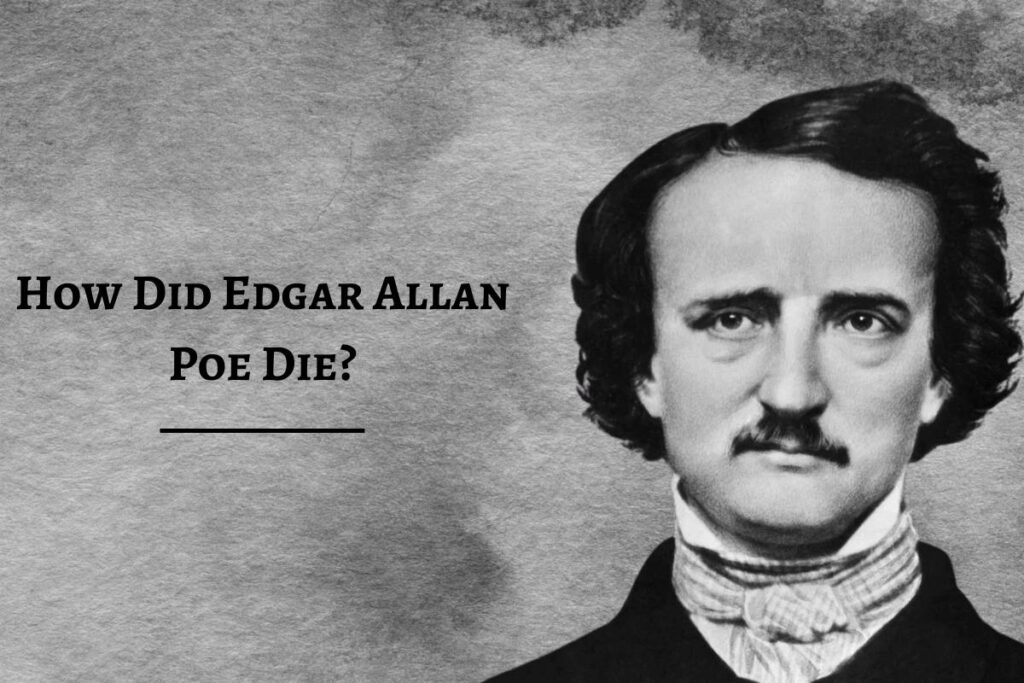Here you will know how did Edgar Allan Poe die? Among his many literary triumphs, Edgar Allan Poe is credited with establishing the genre of detective fiction with his 1841 narrative The Murders in the Rue Morgue, paving the way for fictional detectives from Sherlock Holmes to Nancy Drew. It is fitting that the author’s death in 1849 remains one of American literature’s great mysteries.
In June 1849, Poe started on a speaking tour to seek funds for a literary journal he wanted to launch. Poe was scheduled to take a ferry from Richmond, Virginia, to Baltimore, Maryland, and from there to New York City on September 27, 1849. He went to a doctor in Richmond the evening before the ferry ride because he had a fever. Very little is known at this time about the next few days.
On September 28th, Poe landed in Baltimore but didn’t continue to New York. On October 3, he showed up at a bar in Baltimore. He was in horrible form, nearly unconscious in what witnesses suspected was an alcoholic stupor. A message was sent to a local doctor, and Poe was shortly admitted to a hospital. One weird feature is that Poe’s clothes did not appear to be his own. He was not dressed in his customary all-black wool suit but in a shabby, ill-fitting suit and a straw hat.
Poe hallucinated when he was awake and rambled on incoherently at the hospital. Death came on October 7th. According to a Baltimore newspaper, the cause was mysteriously cited as “congestion of the brain.”
There are several hypotheses as to what killed Poe. Among the most common theories is that his drunkenness ultimately led to his demise. Doctor J.E. Snodgrass, who examined Poe at the bar, concluded that the writer had been drinking extensively and died from the tremors and delirium accompanying alcohol withdrawal. Snodgrass’s claim that Poe had met up with friends in Baltimore and gotten drunk seems to be supported by several anecdotal tales.
Trump would not take my being dead as a reasonable excuse for me not to accept a nomination for Secretary of State.
— Edgar Allan Poe (@Edgar_Allan_Poe) December 2, 2016
Diabetes, heart disease, epilepsy, and tuberculosis are only some illnesses blamed for Poe’s untimely demise. One of the more intriguing hypotheses, presented by a pathologist at the University of Maryland, is that Poe may have died from rabies.
Poe’s madness seemed to get better and then worsen again over the last days of his life, a pattern documented in individuals with late-stage rabies. In addition, Poe’s medical records showed he had trouble keeping liquids down. This may have manifested one of rabies’ hallmark symptoms, a dread of water.
It has also been suggested that Poe was the target of a violent crime. Because the pub where Poe was found was being used as a polling site (it was standard practice in the 19th century for voting to take place in drinking establishments), it has been hypothesized that he may have been caught up in an unusual sort of electoral fraud known as “cooping.” Gangs working for corrupt politicians would kidnap random people off the street and make them vote repeatedly for the same candidate as part of a coping plan.
I can’t compete with @realDonaldTrump for unintentional, angst-ridden humor.
— Edgar Allan Poe (@Edgar_Allan_Poe) February 28, 2017
Due to the lack of cohesive and often contradicting evidence surrounding Poe’s final days, it is unlikely that his untimely demise will ever be fully explained. That could be excellent news for all the amateur sleuths who have been enjoying speculating about his death.
Keep following journalistpr.com for more updates.

